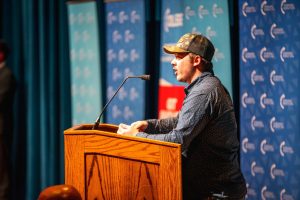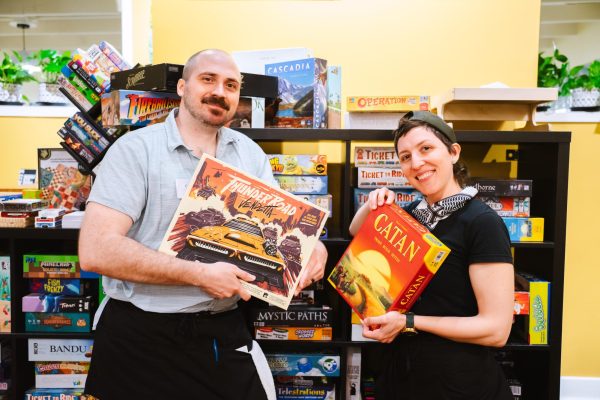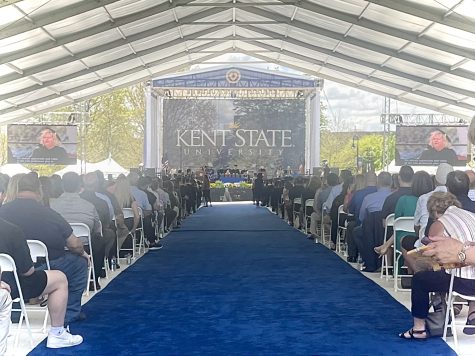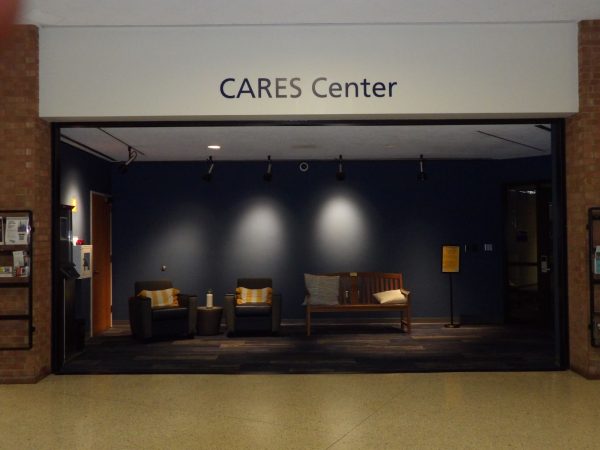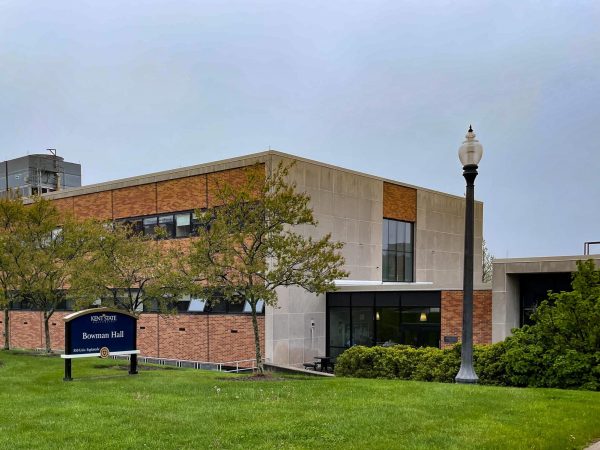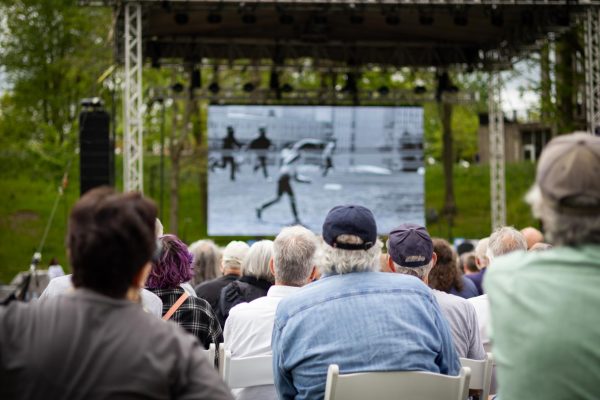KSU foundry professor melts metal and hearts
November 20, 2007
Mike Dragomier “loves melting metal,” Verna Fitzsimmons said of her colleague who won the Foundry Educational Foundation’s Distinguished Professor Award in Chicago on Nov. 9.
The pair of professors, along with two graduate students, represented Kent State’s College of Technology at the non-profit foundation’s College Industry Conference, held every year in the Windy City’s famous Drake Hotel.
During the event, the foundation also doled out two dozen scholarships to students, as well as providing a valuable networking day for students hunting for jobs in the industry.
The award recognized Dragomier’s efforts in creating the “foundry in a box” and his “genuine concern for student well-being and knowledge of the (metal working) industry,” according to the event’s press release.
Raj Chowdhury, dean of the College of Technology, who has known the Cast Metal Program’s Key Professor for 10 years, can attest to Dragomier’s commitment to his students.
His son Omer, discouraged by high school counselors, had struggled in his foundry classes. Dragomier “never lost confidence in him,” Chowdhury said.
Now Omer has a masters in technology and works as an engineer in Chicago.
“If not for Drag, my son would not have succeeded,” the dean said.
When asked about any possible nepotism aiding the younger Chowdhury, Dragomier shrugged and admitted, “I was probably harder on him (because he was the dean’s son). He got yelled at like everybody else.”
The innovative “foundry in a box,” comprised of three separate containers, acts as a “portable demonstration for junior high and high school students,” Dragomier said.
Costing around $5,000, the kit contains a specially modified microwave oven and a small resistant furnace that can liquefy tin, aluminum and iron alloys. The process of melting the metal and making the mold takes only one class period to complete, Dragomier said.
Professor Darryl Webber and his engineering students from Tri-State University in Indiana collaborated with Dragomier to build the educational tool in 2005. Since that time, it has been used by FEF educators across North America.
Along with praise from his colleagues, the award came with a $6,000 check for the surprised professor.
With two sons working on costly engineering degrees — one in mechanical and the other in electrical — Dragomier said the money already has a new home.
This time, though, his magnanimous donation to student education comes with a caveat.
Once his sons graduate, “I’m never going to fix another thing in my life,” he said, smiling.
Contact College of Technology reporter John Hitch at [email protected].









